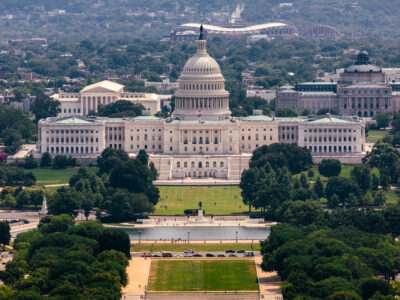The Gulf region is positioning itself to become the next global technology hub, potentially rivaling Silicon Valley’s decades-long dominance by bridging innovation from Latin America with Middle Eastern capital and resources, according to prominent investor and Unicorn Hunters co-founder Silvina Moschini.
Speaking on the sidelines of the Future Investment Initiative (FII) in Riyadh this week, Moschini outlined an ambitious vision where the Gulf could become a “unicorn factory,” particularly by capitalising on its growing ties with Latin American entrepreneurs seeking global expansion.
“One of my main goals is to connect talented Latin American entrepreneurs who are eager to expand with the resources and vision that can help them grow and turn the Gulf into a unicorn factory,” Moschini said in an interview with Arabian Business. She noted that Latin America, despite being home to dozens of unicorns, still faces significant capital access challenges that the Gulf could help address.
AI integration no longer optional for startups
The region’s transformation is occurring alongside a radical shift in technological implementation, with Moschini highlighting that artificial intelligence integration is now non-negotiable for startups seeking investment.
“All companies we’re looking for need to be AI-driven,” she stated, clarifying that this means more than just developing AI solutions.
“The most important thing is that they have AI deeply ingrained and deeply wired into their DNA.”
This push toward technological advancement coincides with what Moschini describes as unprecedented progress in women’s economic inclusion in the region.
“I have seen more change in Saudi Arabia and in the Middle East in general in the last five years than what I’ve seen in the last 100 years in the West,” she observed, pointing to significant developments in Saudi Arabia where women now constitute a growing percentage of advanced degree holders.
The initiative aligns with broader regional efforts to diversify economies and stimulate innovation. Moschini’s company has established partnerships with various organisations, including Google in Qatar and multiple innovation hubs across Colombia, Argentina, and Mexico, creating what she calls one of “the largest ecosystem builder” for startups.
The model hinges on connecting entrepreneurs with strategic investors who can provide more than just capital. Through an AI-driven platform set to deploy in February, the company will facilitate matches between startups and investors who can offer market access, introductions, and regional expertise.
“If we have an entrepreneur from Argentina who wants to expand to Middle East, we have investors in the Middle East that can facilitate intros and contacts with providers, partners, media – everything they need to grow,” Moschini explained.

Investing in social impact
A key differentiator in the Gulf’s approach, according to Moschini, is its emphasis on social impact investments.
Contrary to traditional perspectives that view social impact companies as less profitable, she argues they represent some of the market’s best opportunities.
“When you work on things that resonate with humanity and solve socio-economic issues, you’re able to attract the best partners,” she said, adding that such companies often attract top talent willing to accept lower compensation in exchange for meaningful work.
The region’s evolution as a tech hub is further supported by what Moschini describes as strong cultural alignments, particularly with Latin America.
“The region has a very extensive Arabic immigration, the value of family and friendship and relationships,” she noted, suggesting these cultural bonds could potentially facilitate stronger business ties.
‘The Gulf Dream’
Looking ahead, Moschini predicts that sectors including biotech, health tech, and climate technologies will drive the next wave of innovation in the region. She particularly highlighted opportunities in longevity science and preventive healthcare, areas where AI and big data convergence are creating new possibilities.
“What was happening 50 years ago when people would go to live the American dream, it is now the Gulf Dream,” Moschini said, suggesting a fundamental shift in global opportunity flows that could reshape the technology landscape over the coming decades.
This latest development comes as Gulf nations continue to pour billions into technology investments and startup ecosystems, marking a significant pivot from traditional investment strategies focused on real estate and oil revenues.









